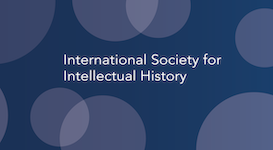 CFP: Paul Ricoeur: Thinker of the Margins?
CFP: Paul Ricoeur: Thinker of the Margins?
18-20 September 2014, University of Antwerp & VU-University Amsterdam
Ricoeur can be called the philosopher of all dialogues. He engaged virtually all the great movements of thought, entered into debate with scientists, and voices his concerns in the public debate. He never sought to engage in polemics but tried to engage seemingly unbridgeable positions or thinkers in a fruitful dialogue. Ricoeur was not a radical thinker in search of extremes, but rather committed to mediate between conflicting philosophers and streams of thought, therein lies part of his originality and creativity. Where others sees dichotomy, he sees dialectic. In this regard one cannot but note how often Ricoeur uses the word between (entre) in the titles of his articles, always in search of connections, confrontations, and unexpected syntheses between thinkers who have preceded him. He really is a thinker of the between.
But does Ricoeur’s ‘dialogical approach’ not result in a harmonization of often diverging positions? Is Ricoeur able to hear the radicalness of certain insights? Is it possible that his hermeneutical philosophy takes away the sharpness of certain problems in current religious, political and philosophical debates? Might it even be the case that he did not hear certain voices, precisely because they resist synthesis? This conference inquires what happens to Ricoeur’s hermeneutical approach i we confront it with its limits.
The conference will address topical philosophical, socio-political and religious issues, from a Ricoeurian perspective, but in conversation with other, more ‘radical’ thinkers.
Call for papers
The organizing committee welcomes submissions that address any aspects of Ricoeur’s work. Nevertheless, we especially invite proposals on the conference’s theme Ricoeur: Thinker of the Margins.
Possible topics include:
- Justice and the Struggle for Recognition: Justice is an important concept in Ricoeur’s work, first of all, as an ethical concept. For Ricoeur, justice is a way o establishing peace, both in concrete relations to others, as on the level of institutions. In The Course of Recognition, Ricoeur however shifts the focus on political philosophy, and, in so doing he creates a tension in his understanding of justice. On the one hand, he agrees with Hegel and Honneth that justice is a justification for violence that is part of “the struggle for recognition”. On the other hand, Ricoeur also points again to the role of justice for peace. As he argues with Marcel Hénaff, in the exchange of gifts for instance, the parties involved proof their recognition to one another, and, in this sense, they maintain a peaceful relationship. This session aims at investigating the tension between justice and recognition in Ricoeur’s work, and especially in The Course of Recognition.
- Ricoeur, the Religious Other and Interreligious Dialogue: In the vast collection of his writings Ricoeur only sporadically raised the issue of interreligious dialogue Though Ricoeur was sensitive to issues of religious diversity, interreligious violence and the encounter between religions, he did not engage into a systematic debate on these issues. However Ricoeur’s hermeneutical philosophy may offer a framework enabling a thorough reflection on the challenges presented by the encounter between religions.
- Discourse, Normativity and Power : The reason that Ricoeur’s thinking is not often mentioned in the context of feminist, queer and race theory is perhaps his consideration of discourse as a “laboratory of thought experiments”, instead of as excluding and normative. On the other hand, his hermeneutics of suspicion, notions of critique and distanciation, and his ideas about the narrative and ethical self do seem interesting for thinking about alterity and difference. For this session, we invite papers that reflect upon Ricoeur’s notion of discourse, and address the question of normativity and power.
- Literature, Identity, Politics: Literary fiction plays an important role in Ricoeur’s hermeneutics of subjectivity, especially with regard to his concept of narrative identity, which enables him to synthesize different aspects of personal identity. Ricoeur is less explicit about the relation between literary fiction and politics. This relation entails, however, vital issues, like for instance the role of fiction in the constitution of a political entity, the (legitimizing, critical or anarchic) function of narratives in political discourse, the power dependency (and transformation) of the narrative imagination, the possibility of politic pluralism, etc. In this session, we intend to critically examine the contribution of Ricoeur’s hermeneutics to these issues.
Please submit an abstract of approximately roughly 300-500 words (including the paper’s title, the author’s name, institutional affiliation, mailing address, and email address. Times New Roman typeface size 12, interspaced 1.5, justified paragraphs). Abstracts and papers may be in English or in French. There will be parallel sessions giving each speaker about 20 min to present and 15 minutes for discussion.
Deadline for submission is February 15th, 2014. Notification of acceptance will be given before the 15th of April, 2014.
Please e-mail submissions to Geoffrey Dierckxsens.

